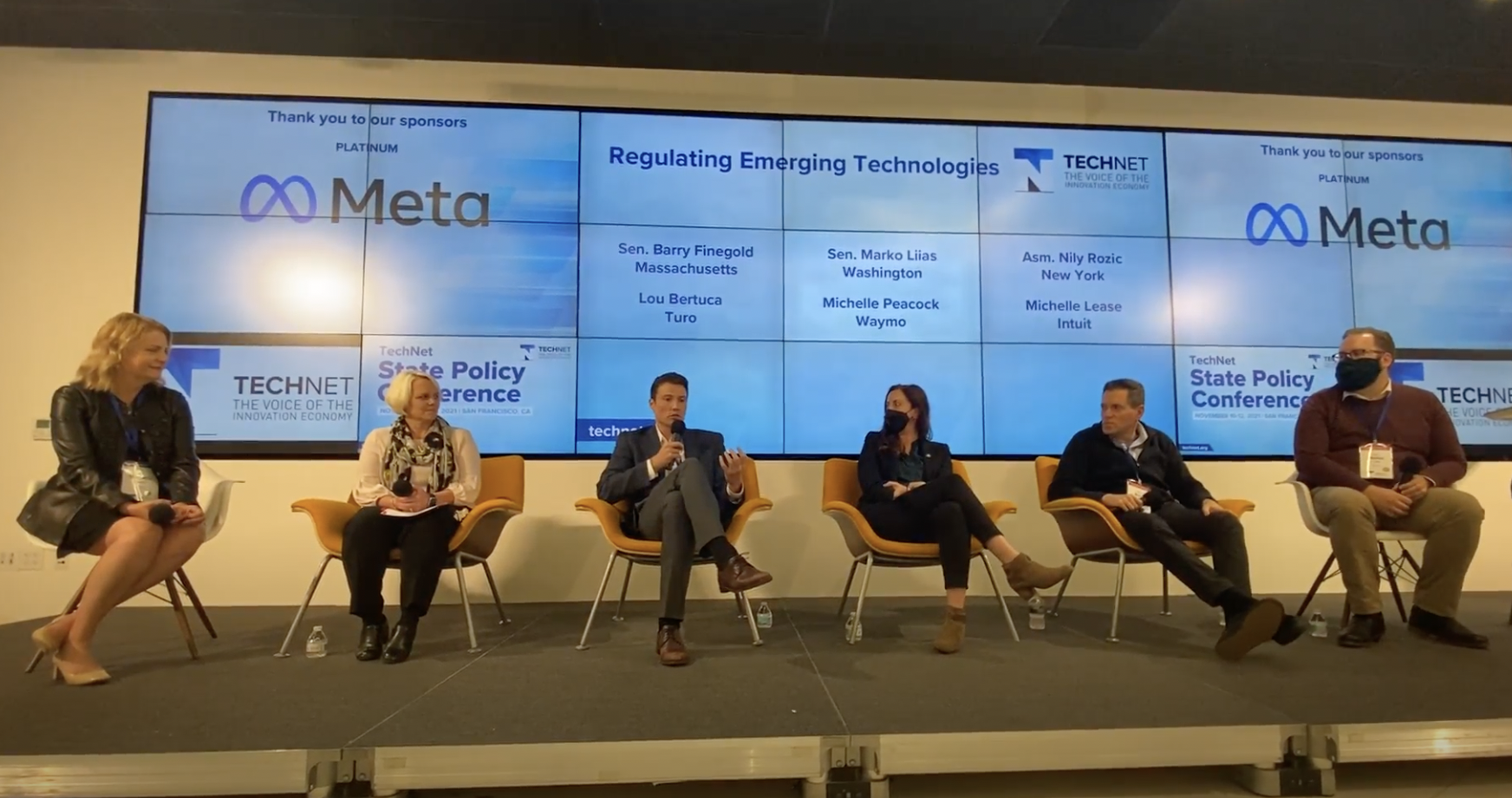TechNet panel talks good, bad, ugly about regulating emerging technologies
Earlier this month, government and technology leaders landed in San Francisco at the annual TechNet state policy event to discuss regulation affecting everyday citizens across the United States. The nation’s largest peer-to-peer car sharing platform, Turo, had a seat at the table and offered insight into the world of regulating new technologies and how it impacts all consumers.
Every year, the TechNet conference brings together impactful groups, including emerging technology experts and state legislators. On this year’s panel was Turo Vice President of Government Relations Lou Bertuca, along with several other leaders in the tech industry and government representatives alike.
Lou Bertuca, Turo’s VP of Government Relations
During the conversation, the panel members discussed how groups like Turo are considered “industry disruptors” because it poses a threat to status quo market leaders. For example, Turo disrupts traditional rental car companies, such as Hertz and Enterprise, because it offers a new platform in which consumers can find vehicles for booking at competitive rates and with an elevated twist – peer-to-peer car sharing.
Lawmakers are considered the gatekeepers of emerging technologies and thus must dedicate much of their limited time to understanding these new concepts in the marketplace. Weighing the burdens versus the benefits of an emerging technology is no small feat, especially when it often means taking the risk of trying something new themselves in order to understand the frame of reference.
Nonetheless, lawmakers and technology leaders around the nation have gone above and beyond in bringing better consumer options for residents in their states. This past year, Turo passed 10 bills across the country that provided a clear path for states on how to best regulate peer-to-peer car sharing. This monumental achievement was also due to Turo’s deep commitment to providing greater opportunities for individuals seeking financial flexibility and freedom.
While Turo is immensely proud of these feats, there is still much work to be done because status quo stakeholders, such as traditional rental car companies, seek to preserve “mobility deserts” in order to ensure their profits are protected. A mobility desert refers to an area in which transportation and options for emerging mobility technologies are limited or nonexistent in a specified area.
“I think having more options, and looking at what the customer and what the community needs, as opposed to just looking strictly at how it will disrupt an incumbent company, is what we should focus on,” Bertuca said.
Bertuca also spoke about the importance of making sure any legislative policy being brought to the proverbial table is focused on how it will help people, not on politics. For example, recent media attention surrounding rental car tax laws found that traditional rental car companies benefit from an archaic tax loophole that allows them to skip the sales tax on the vehicles they purchase. This decades-old and misguided decision causes states to lose out on approximately $4 billion in taxes every year, yet has done nothing for consumers who continue to see increasing traditional rental car rates.
“Let’s not focus on politics because when policy [is discussed…], you find out that rental car companies don’t pay taxes when they buy cars,” Bertuca said.
[Read more: TechCrunch exposes Big Rentals’ unscrupulous sales tax exemption]
Legislators’ decisions on how to regulate the marketplace have long-standing effects on the everyday citizen and the state economy as a whole. Lawmakers and tech industry leaders on the TechNet panel are adamant that any regulation introduced at the state-level should be reflective of what the community desires and must promote practices that have the power to improve citizens’ lives, not simply line the pockets of corporations.
Turo is proud to have received an outpouring of support from citizens, lawmakers, and community leaders across the country who agree that putting the world’s 1.5 billion cars to better use creates marketplace competition and individual entrepreneurship.


